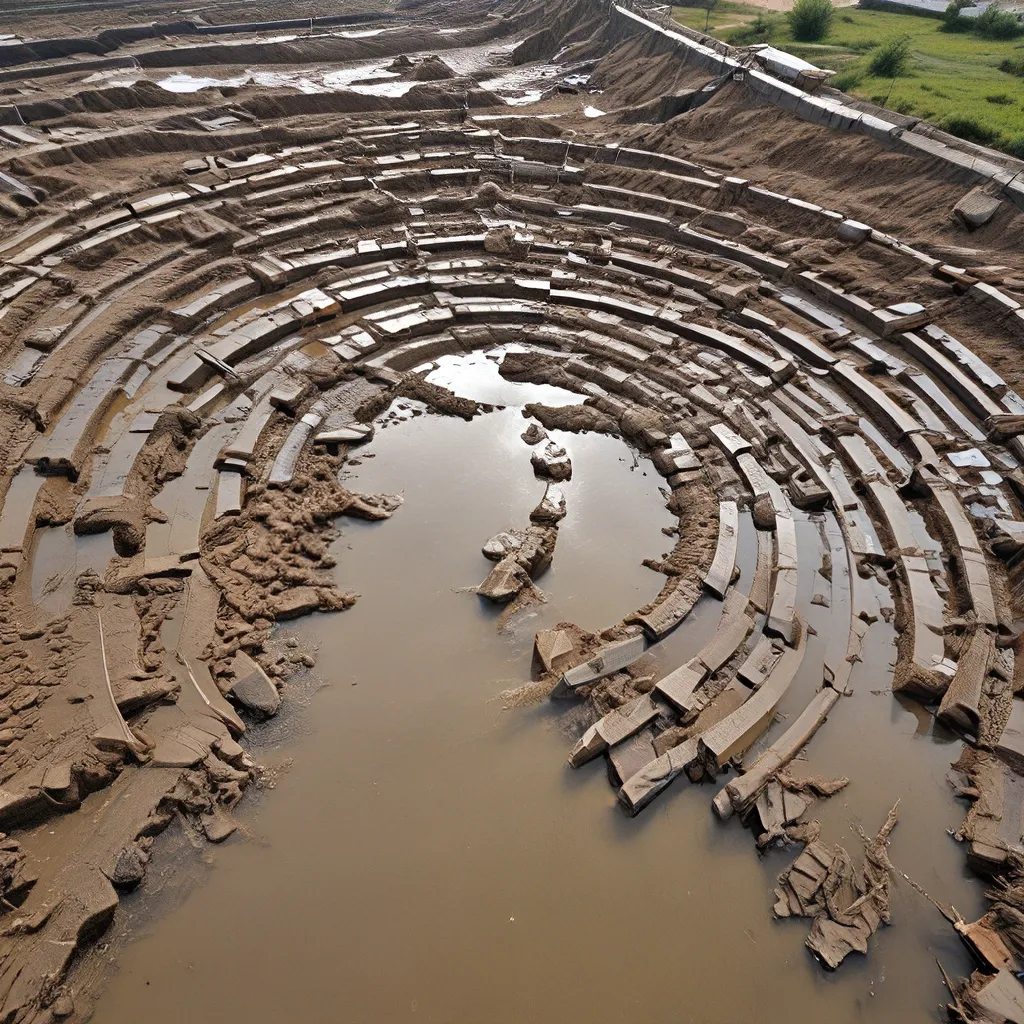
Weathering the Storm: Safeguarding Water Infrastructure in Times of Crisis
As the world grapples with the ever-increasing impacts of climate change, the role of wastewater treatment has become more crucial than ever. Gone are the days when we could simply assume the reliable flow of water and the seamless operation of our sanitation systems. Today, we face a reality where droughts, floods, and other natural disasters can disrupt these essential services, leaving communities vulnerable and at risk.
But here’s the thing – I’ve seen firsthand how the right approach to wastewater management can make all the difference. It’s not just about treating the water; it’s about building resilience, anticipating challenges, and ensuring the continuity of service even in the face of the most daunting crises.
Proactive Planning: The Key to Weathering the Storm
When it comes to disaster preparedness, the old adage “an ounce of prevention is worth a pound of cure” couldn’t be more true. That’s why the team at Alpha Wastewater has made it their mission to stay ahead of the curve, constantly planning and preparing for the unexpected.
Through the use of artificial intelligence and sophisticated forecasting models, we’re able to anticipate potential water crises, whether they’re caused by drought, severe storms, or other natural disasters. By monitoring our water resources – from surface water to groundwater – we can predict the state of these resources days, weeks, and even years in advance. This allows us to implement proactive and efficient management strategies to maintain a constant and reliable supply of water, even in the face of adversity.
But it’s not just about the data; it’s also about fostering strong communication and collaboration with our community partners. We work closely with local authorities, emergency responders, and water users to ensure that everyone is on the same page and ready to respond effectively when a crisis strikes.
Weathering the Storm: Adapting and Innovating
When a crisis can’t be prevented, that’s when our team really shines. We’ve developed a comprehensive toolkit of emergency response solutions that allow us to quickly compensate for any drinking water deficits and meet the urgent needs of affected populations.
From deploying mobile water treatment units to coordinating the delivery of water by tanker, we’re prepared to spring into action and restore service as quickly as possible. And we don’t stop there – we also work tirelessly to preserve water resources, implementing strict water use restrictions and promoting sustainable irrigation practices to ensure the responsible and sustainable management of our precious water supplies.
But it’s not just about the immediate response; it’s also about long-term resilience. That’s why we’re constantly evaluating our crisis management procedures, reinforcing our material resources, and conducting training and exercises to improve our readiness for future challenges.
Sharing the Load: Collaborative Crisis Management
One of the key things I’ve learned in my time working in the wastewater industry is that no one can tackle a crisis alone. That’s why we place a strong emphasis on collaborative crisis management, working closely with our partners and stakeholders to ensure a coordinated and effective response.
Whether it’s communicating with water users to share the resource equitably, reorganizing processes to maintain production in degraded mode, or securing critical infrastructure to guarantee the quality of the water distributed, we know that it takes a village to weather the storm.
And that’s exactly what we do – we rally the troops, bring everyone together, and work tirelessly to restore a sense of normalcy and reassure the community that their water and sanitation services are in good hands.
The Future of Wastewater Resilience: Embracing Emerging Technologies
As we look to the future, it’s clear that the challenges facing our water infrastructure are only going to become more complex and demanding. But I’m confident that the team at Alpha Wastewater is up for the task, thanks to our commitment to innovation and continuous improvement.
We’re constantly exploring new technologies and strategies to enhance our disaster preparedness and crisis response capabilities. Whether it’s machine learning algorithms that can better predict water scarcity or remote monitoring systems that allow us to keep a closer eye on our critical assets, we’re always on the lookout for ways to stay one step ahead of the curve.
And let’s not forget the role of renewable energy in all of this. By integrating solar panels and implementing energy-efficient technologies in our wastewater treatment plants, we’re able to reduce our carbon footprint and ensure the long-term sustainability of our operations, even in the face of increasingly unpredictable energy supplies.
Conclusion: Resilience Through Vigilance
At the end of the day, the story of wastewater treatment and disaster resilience is one of vigilance, adaptability, and community-driven solutions. It’s about anticipating challenges, embracing innovation, and working together to ensure that even in the darkest of times, our communities always have access to the clean, reliable water they need to thrive.
So, the next time a storm rolls in or a drought takes hold, rest assured that the team at Alpha Wastewater is out there, battling the elements and safeguarding our most precious resource. Because when it comes to the resilience of our water infrastructure, we’re in it for the long haul – and we’re not going down without a fight.